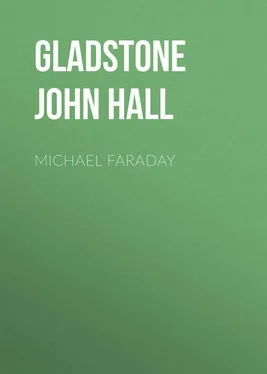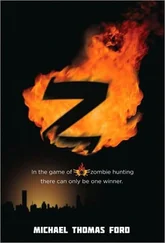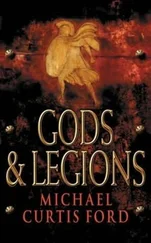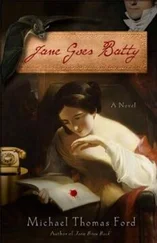John Gladstone - Michael Faraday
Здесь есть возможность читать онлайн «John Gladstone - Michael Faraday» — ознакомительный отрывок электронной книги совершенно бесплатно, а после прочтения отрывка купить полную версию. В некоторых случаях можно слушать аудио, скачать через торрент в формате fb2 и присутствует краткое содержание. Жанр: foreign_antique, foreign_prose, на английском языке. Описание произведения, (предисловие) а так же отзывы посетителей доступны на портале библиотеки ЛибКат.
- Название:Michael Faraday
- Автор:
- Жанр:
- Год:неизвестен
- ISBN:нет данных
- Рейтинг книги:5 / 5. Голосов: 1
-
Избранное:Добавить в избранное
- Отзывы:
-
Ваша оценка:
- 100
- 1
- 2
- 3
- 4
- 5
Michael Faraday: краткое содержание, описание и аннотация
Предлагаем к чтению аннотацию, описание, краткое содержание или предисловие (зависит от того, что написал сам автор книги «Michael Faraday»). Если вы не нашли необходимую информацию о книге — напишите в комментариях, мы постараемся отыскать её.
Michael Faraday — читать онлайн ознакомительный отрывок
Ниже представлен текст книги, разбитый по страницам. Система сохранения места последней прочитанной страницы, позволяет с удобством читать онлайн бесплатно книгу «Michael Faraday», без необходимости каждый раз заново искать на чём Вы остановились. Поставьте закладку, и сможете в любой момент перейти на страницу, на которой закончили чтение.
Интервал:
Закладка:
The rising philosopher indulged, too, in other recreations. He had a wonderful velocipede, a progenitor of the modern bicycle, which often took him of an early morning to Hampstead Hill. There was also his flute; and a small party for the practice of vocal music once a week at a friend's house. He sang bass correctly, both as to time and tune.
And though the City Philosophical Society was no more, the ardent group of students of nature who used to meet there were not wholly dispersed. They seem to have carried on their system of mutual improvement, and to have read the current scientific journals at Mr. Nicol's house till he married, and then alternately at those of Mr. R. H. Solly, Mr. Ainger, and Mr. Hennel, of Apothecaries' Hall, who came to a tragical end through an explosion of fulminating silver. Several of them, including Mr. Cornelius Varley, joined the Society of Arts, which at that time had committees of various sciences, and was very democratic in its management; and, finding that by pulling together they had great influence, they constituted themselves a "caucus," adopting the American word, and meeting in private. Magrath was looked upon as a "chair-maker," and Faraday in subsequent years held the office of Chairman of the Committee of Chemistry, and occasionally he presided at the large meetings of the Society.
During this time (1823) the Athenæum Club was started, not in the present Grecian palace in Pall Mall, but in a private house in Waterloo Place. Its members were the aristocracy of science, literature, and art, and they made Faraday their honorary secretary; but after a year he transferred the office to his friend Magrath, who held it for a long period.
Among the various sects into which Christendom is divided, few are less known than the Sandemanians. About a century and a half ago, when there was little light in the Presbyterian Church of Scotland, a pious minister of the name of John Glas began to preach that the Church should be governed only by the teaching of Christ and His apostles, that its connection with the State was an error, and that we ought to believe and to practise no more and no less than what we find from the New Testament that the primitive Church believed and practised. These principles, which sound very familiar in these days, procured for their asserter much obloquy and a deposition by the Church Courts, in consequence of which several separate congregations were formed in different parts of Great Britain, especially by Robert Sandeman, the son-in-law of Mr. Glas, and from him they received their common appellation. In early days they taught a simpler view of faith than was generally held at that time; it was with them a simple assent of the understanding, but produced by the Spirit of God, and its virtue depended not on anything mystical in the operation itself, but on the grandeur and beauty of the things believed. Now, however, there is little to distinguish them in doctrine from other adherents of the Puritan theology, though they certainly concede a greater deference to their elders, and attach more importance to the Lord's Supper than is usual among the Puritan Churches. Their form of worship, too, resembles that of the Presbyterians; but they hold that each congregation should have a plurality of elders, pastors, or bishops, who are unpaid men; that on every "first day of the week" they are bound to assemble, not only for prayers and preaching, but also for "breaking of bread," and putting together their weekly offerings; that the love-feast and kiss of charity should continue to be practised; that "blood and things strangled" are still forbidden as food; and that a disciple of Christ should not charge interest on loans except in the case of purely business transactions, or lay up wealth for the unknown future, but rather consider all he possesses as at the service of his poorer brethren, and be ready to perform to them such offices of kindness as in the early Church were expressed by washing one another's feet.
But what gives the remarkable character to the adherents of this sect is their perfect isolation from all Christian fellowship outside their own community, and from all external religious influence. They have never made missionary efforts to win men from the world, and have long ceased to draw to themselves members from other Churches; so they have rarely the advantage of fresh blood, or fresh views of the meaning of Scripture. They commonly intermarry, and are expected to "bear one another's burthens;" so the Church has acquired somewhat of the additional character of a large intertwined family and of a mutual benefit society. This rigid separation from the world, extending now through three or four generations, has produced a remarkable elevation of moral tone and refinement of manner; and it is said that no one unacquainted with the inner circle can conceive of the brotherly affection that reigns there, or the extent to which hospitality and material help is given without any ostentation, and received without any loss of self-respect. The body is rendered still more seclusive by demanding, not merely unity of spirit among its members, but unanimity of opinion in every Church transaction. In order to secure this, any dissentient who persists in his opinion after repeated argument is rejected; the same is also the consequence of neglect of Church duties, as well as of any grave moral offence: and in such a community excommunication is a serious social ban, and though a penitent may be received back once, he can never return a second time.
It was in the midst of this little community that Faraday received his earliest religious impressions, and among them he found his ecclesiastical home till the day of his entrance into the Church above.
Among the elders of the Sandemanian Church in London was Mr. Barnard, a silversmith, of Paternoster Row. The young philosopher became a visitor at his house, and though he had previously written, —
"What is't that comes in false deceitful guise,
Making dull fools of those that 'fore were wise?
'Tis Love."
– he altered his opinion in the presence of the citizen's third daughter, Sarah, and wrote to her what was certainly not the letter of a fool: —
"You know me as well or better than I do myself. You know my former prejudices and my present thoughts – you know my weaknesses, my vanity, my whole mind; you have converted me from one erroneous way, let me hope you will attempt to correct what others are wrong… Again and again I attempt to say what I feel, but I cannot. Let me, however, claim not to be the selfish being that wishes to bend your affections for his own sake only. In whatever way I can best minister to your happiness, either by assiduity or by absence, it shall be done. Do not injure me by withdrawing your friendship, or punish me for aiming to be more than a friend by making me less; and if you cannot grant me more, leave me what I possess, – but hear me."
The lady hesitated, and went to Margate. There he followed her, and they proceeded together to Dover and Shakspeare's Cliff, and he returned to London full of happiness and hope. He loved her with all the ardour of his nature, and in due course, on June 12, 1821, they were married. The bridegroom desired that there should be no bustle or noise at the wedding, and that the day should not be specially distinguished; but he calls it himself "an event which more than any other contributed to his happiness and healthful state of mind." As years rolled on the affection between husband and wife became only deeper and deeper; his bearing towards her proved it, and his letters frequently testify to it. Doubtless at any time between their marriage and his final illness he might have written to her as he did from Birmingham, at the time of the British Association: – "After all, there is no pleasure like the tranquil pleasures of home, and here – even here – the moment I leave the table, I wish I were with you in quiet. Oh! what happiness is ours! My runs into the world in this way only serve to make me esteem that happiness the more."
Читать дальшеИнтервал:
Закладка:
Похожие книги на «Michael Faraday»
Представляем Вашему вниманию похожие книги на «Michael Faraday» списком для выбора. Мы отобрали схожую по названию и смыслу литературу в надежде предоставить читателям больше вариантов отыскать новые, интересные, ещё непрочитанные произведения.
Обсуждение, отзывы о книге «Michael Faraday» и просто собственные мнения читателей. Оставьте ваши комментарии, напишите, что Вы думаете о произведении, его смысле или главных героях. Укажите что конкретно понравилось, а что нет, и почему Вы так считаете.












